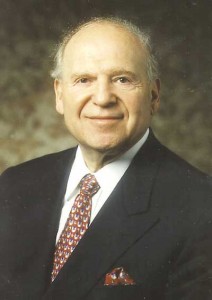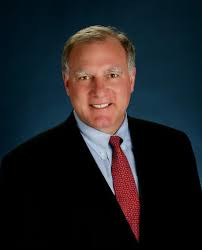After a half-dozen years of banging its head on the door of the Florida Legislature, a frustrated Las Vegas Sands is calling it quits in the Sunshine State. Despite having poured millions of  dollars into the Florida GOP and its prize causes, Sheldon Adelson is no closer to getting a Florida casino than he was back when he nervily proposed that the state give him exclusive rights to build five or six resort-casinos in the state — or to draw a 75-mile ‘line of death’ around every Sands-branded casino.
dollars into the Florida GOP and its prize causes, Sheldon Adelson is no closer to getting a Florida casino than he was back when he nervily proposed that the state give him exclusive rights to build five or six resort-casinos in the state — or to draw a 75-mile ‘line of death’ around every Sands-branded casino.
Nope, Sands is winding down its lobbying operations and turning its attention to Georgia, where Adelson recently conducted a “listening” tour. (The mere fact that Sheldon was listening rather than talking suggests that Hell has frozen over.) Sands lobbyist-in-chief Andy Abboud offers that the Seminole Tribe‘s heavy gaming presence in southern Florida is part of what discouraged Sands from further pursuit of its casino chimera, although frustration with the Lege was also implied. Abboud complained that “negotiations with the Seminoles drive everything. They pretty much dominate the landscape.”
For now, Sands is going to refrain from putting the kind of strong-arm tactics in Georgia that it applied to Florida. Abboud said Sands would proceed discreetly and let Georgia lawmakers figure out what they want to do first. It’s rare to see Sheldon Adelson admit defeat, so his failure to impose his will on Florida is practically a moment of historic proportions.
* Although it’s happening in North Carolina, the opening of Harrah’s Cherokee Valley River Casino may have more effect on Georgia. It moves Caesars Entertainment‘s presence an hour’s drive closer to Atlanta and underlines the fact that the Cherokee are drawing off gambling revenues that might be spent in the Peachtree State. It may be too soon for legislators to feel the pressure but that could change when Harrah’s revenue figures start to emerge.
* In the course of giving a highly conditional endorsement of the Mashpee Wampanoags‘ proposed Taunton casino, the Boston Globe raises a previously undiscussed worst-case scenario: The federal courts junk the tribe’s land-into-trust application and the Massachusetts Gaming Commission sends Neil Bluhm  packing (or Bluhm loses patience), leaving the state with no viable applicant for Region C. And, one must ask, how long is the MGC prepared to wait (and risking losing both Bluhm’s Brockton bid and its 25% tax payments) for the sake of seeing a definitive resolution to the tribe’s situation?
packing (or Bluhm loses patience), leaving the state with no viable applicant for Region C. And, one must ask, how long is the MGC prepared to wait (and risking losing both Bluhm’s Brockton bid and its 25% tax payments) for the sake of seeing a definitive resolution to the tribe’s situation?
As the Globe observed, lawmakers intended — but did not specifically earmark –one license to go to a tribal casino. Nor did voters approve four casinos, should the Mashpee Wampanoags go the federal-recognition route. The editorial continues, “the commission can’t be expected to look through the same rose-tinted glasses as tribal leaders, and clearly can’t treat [tribal Chairman Cedric] Cromwell’s forecasts as airtight. It shouldn’t halt consideration of the Brockton casino proposal unless it concludes, through an independent legal analysis, that the tribal casino is now a realistic possibility.” But, in the end, the Globe weighs in cautiously against Bluhm and for the tribe.
Another company seeking to protect its Massachusetts foothold is MGM Resorts International, which has taken the somewhat extraordinary step of suing Connecticut, hoping to block a third  casino in that state, the joint venture of Foxwoods Resort Casino and Mohegan Sun. Nobody’s making any bones that this isn’t a cock-block to MGM Springfield, which could draw customers heavily from the Hartford area, being just up the freeway. According to an editorial in The Day, “MGM cries foul, arguing that providing any special privilege to the tribes violates the U.S. Constitution’s equal protection clause and the spirit of the Indian Gaming Act, which allows casinos to
casino in that state, the joint venture of Foxwoods Resort Casino and Mohegan Sun. Nobody’s making any bones that this isn’t a cock-block to MGM Springfield, which could draw customers heavily from the Hartford area, being just up the freeway. According to an editorial in The Day, “MGM cries foul, arguing that providing any special privilege to the tribes violates the U.S. Constitution’s equal protection clause and the spirit of the Indian Gaming Act, which allows casinos to  operate on federally recognized reservations, as a means of boosting commerce on tribal lands.”
operate on federally recognized reservations, as a means of boosting commerce on tribal lands.”
In response, Attorney General George Jepsen argues that MGM lacks standing, which it would only have had it applied for a Connecticut casino license and been denied. Furthermore, the company’s host-community agreement with Springfield forbids MGM from opening another casino within a 50-mile radius, putting most of Connecticut off-limits. Jepsen’s brief underscores how much of a desperation move MGM’s litigation is.


While driving through Georgia last week I heard Conservative Macon Based Radio Hothead Erik Ericson ranting and raving about Sheldon’s recent trip to the Capitol in Atlanta. Ericson was signaling that the tea-party wing of the Georgia GOP was going to scream long and loudly about any casinos in the state especially the Turner Field site in Atlanta.